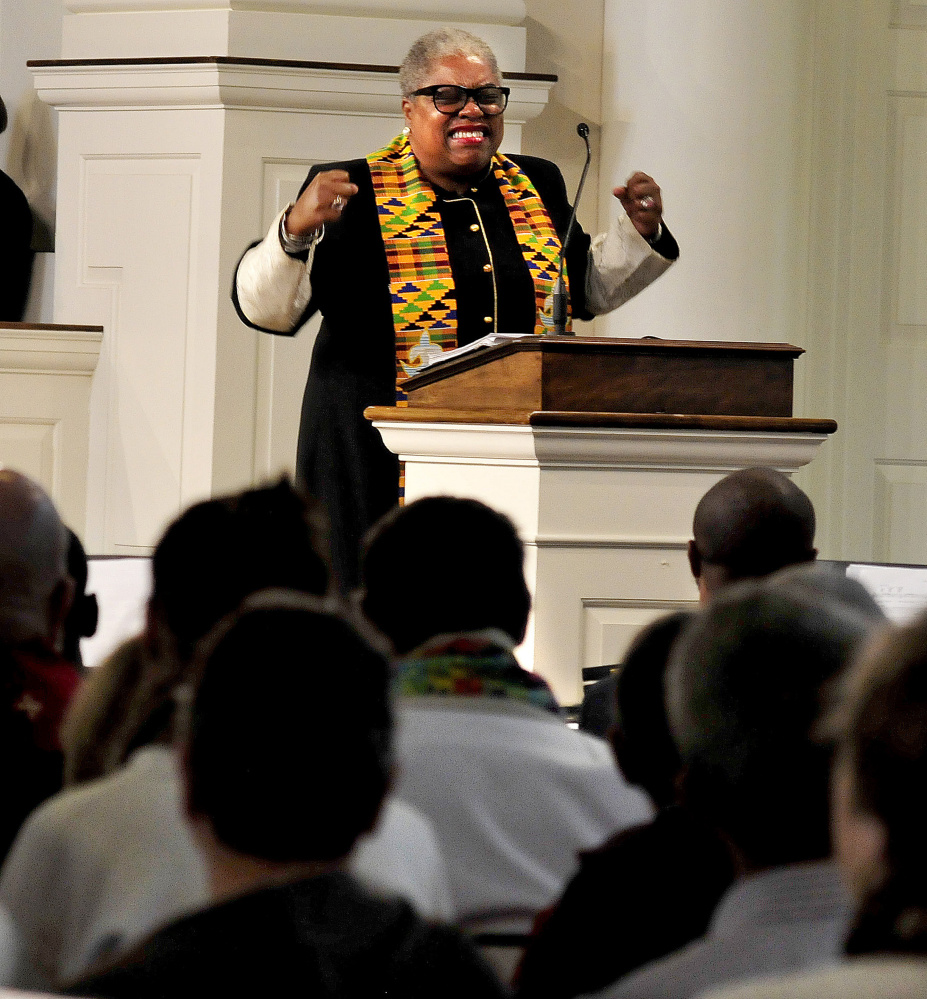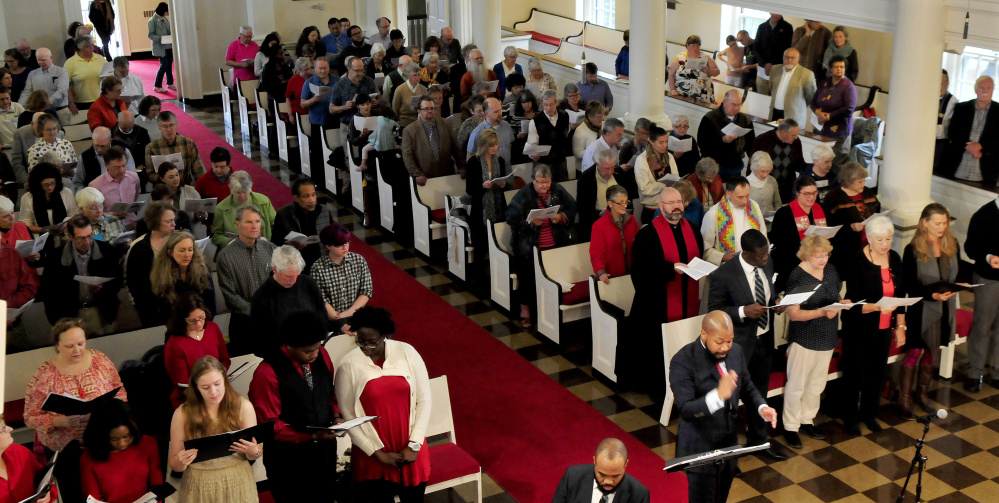WATERVILLE — Five hundred years ago, Martin Luther posted his “Ninety-five Theses” on churches’ doors throughout Germany, sparking what would become one of the largest schisms from the Catholic Church in history.
On Sunday, local congregations of a number of Protestant denominations from the greater Waterville area gathered in Lorimer Chapel at Colby College to celebrate the quincentenary anniversary through music, gospel and prayer.
At the start of the service, a 33-person choir sang “Everybody Let’s Praise the Lord,” clapping along as David Dupree, a visiting gospel musician from Washington, directed the group. As the choir hit its rhythm, Dupree turned to the audience in the simple white chapel, and soon the more than 200 attendees were clapping along with the choir. The music filled the high-ceilinged space and bounced off the pillars lining the nave.
“Songs do something special to and for the human spirit,” said the Rev. Cheryl Townsend Gilkes, an assistant pastor at the Union Baptist Church in Cambridge, Massachusetts, and a professor of sociology and African-American studies at Colby College.
Gilkes was one of a number of speakers during the service, which was titled “Bringing the Protest Back to Protestantism.” Dupree and David Powell, also a visiting gospel musician, of Princeton, New Jersey, co-directed the music. Both are returning to Colby College to complete their second gospel residencies.
Kurt Nelson, dean of religious and spiritual life at Colby College, organized the event, which he called an “unprecedented gathering of congregations and people here in central Maine.”
“You are warmly welcomed to this space,” he said after the first song. The gospel choir, according to Nelson, was only 26 hours old, having just attended a day-long rehearsal on Saturday.
A number of congregations sponsored the event, including the Pleasant Street United Methodist Church, Benton Falls Congregational Church, Winslow Congregational Church, St. Mark’s Episcopal Church, Waterville United Church of Christ and the Colby Ecumenical Christian Chapel. The Colby Office of Religious and Spiritual Life, Students Organized for Black and Latinx Unity and the Pugh Center also sponsored the service.
Each speaker Sunday touched upon a different piece of history on the Protestant Reformation, started by Luther.
The Rev. John Balicki, a rector at St. Mark’s Episcopal Church on Eustis Parkway, spoke about two other leaders in the movement: Thomas Cranmer, who was the first to write the Book of Common Prayer in English, and William Tyndale, who first translated the Bible into English.
“That might not sound too controversial, but it was,” Balicki said. “Fighting was quite fierce throughout England in the 16th century.”
Both Tyndale and Cranmer were burned at the stake for their work, according to Balicki, and the schism would eventually start the Thirty Years’ War, which lasted from 1618 to 1648.
Gilkes, though, suggested that the history of Protestantism stretches back even further in her talk, titled “Freedom Song.”
“The prophets of ancient Israel were probably the original Protestants,” she said. “(…) When you see poetry in the (Bible) text, they sing it.”
Their voices are raised to tell the faithful now what to do for the future, Gilkes said, and their voices are raised to inspire change.
“It revives us, it gives us new spirit,” she said.
Gilkes felt the pull of music early on in her life. When she was 8, she joined the junior choir at her Baptist church, after feeling the call to sing for two years, she said.
While she talked of verses and songs from the Old Testament, Gilkes said that we are still called to raise freedom songs today.
“Those songs help us to put the protest back in Protestantism,” she said.
Madeline St. Amour — 861-9239
mstamour@centralmaine.com
Twitter: @madelinestamour
Send questions/comments to the editors.





